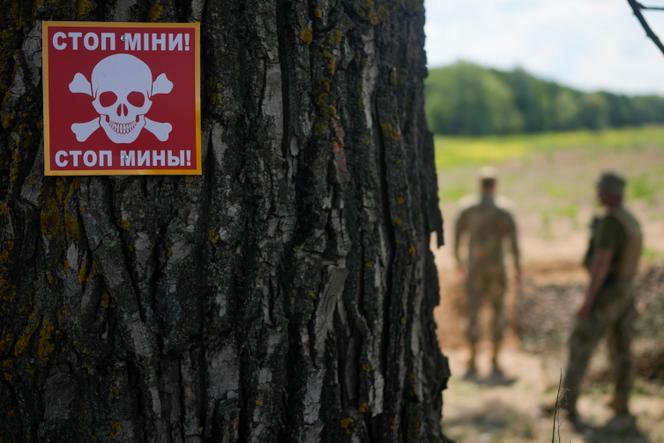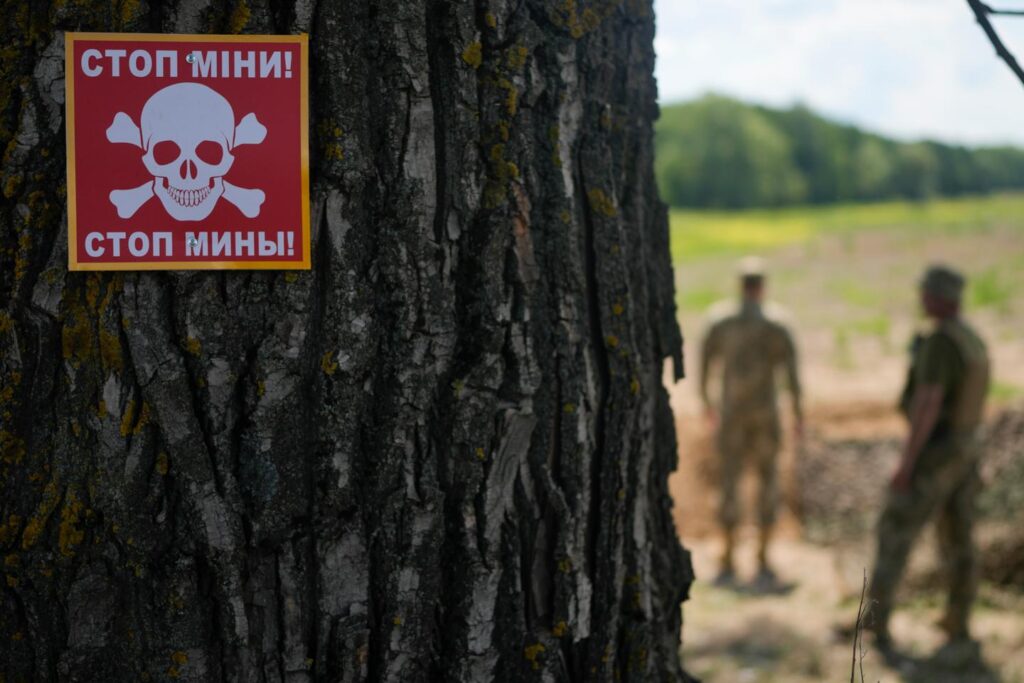
After more than three years of invasion of Ukraine by Russia, Volodymyr Zelensky signed a decree providing for the withdrawal of Ukraine from the Ottawa Convention, which prohibits the production and use of anti -personnel mines, the Ukrainian presidency announced on Sunday, June 29.
“I decide to put into force the decision of the National Security and Defense Council of Ukraine of June 29, 2025, on the withdrawal of Ukraine from the Convention on the Prohibition of Employment, Storage, production and transfer of anti -personnel mines and their destruction of September 18, 1997”Can we read in this presidential decree. However, there are several stages before an effective withdrawal: first of all that the Ukrainian parliament, the rada, votes in favor of such a decision, then that kyiv notifies the UN.
The 1997 Ottawa Convention, signed by more than 160 countries, prohibits anti -personnel mines, designed to be buried or hidden in the soil. Trunk in contact or near a person, these anti -personnel mines can kill or cause serious injuries. These devices often remain active after a conflict, thus preventing the return of populations.
“Difficult but necessary” measure, according to kyiv
Ukraine had ratified this treaty in 2005, but not Russia, which invaded its territory from February 2022 and used these mines. The Ukrainian Ministry of Foreign Affairs described the measure of “Difficult” more “Necessary and proportionate” with regard to “The absolute priority which is to defend our state against the brutal aggression of Russia”.
“This is a measure that the reality of war has long required. Russia is not a party to this convention and massively use mines against our soldiers and civilians ”said Roman Kostenko, secretary of the National Security, Defense and Intelligence Committee of Parliament, On his Facebook page. “We cannot be trapped in an environment in which the enemy has no restrictions”He added, believing that the use of anti-personnel mines will allow Ukraine to better defend its territory while Russian offensives have multiplied in recent and northern in recent months.
Last March, the three Baltic countries – Lithuania, Latvia, Estonia – as well as Poland, all allies close to Ukraine, announced their decision to leave the Ottawa Convention, decisions then deplored by NGOs. The International Committee of the Red Cross had denounced a “Dangerous decline for the protection of civilians in armed conflicts”.
At the end of 2024, the outgoing American president, Joe Biden, authorized the supply to Ukraine of anti -personnel mines to help him brake the advance of the Russians.


